
Editor Lamin Cham’s article, “Will Barrow, Darboe Do a Biden?” published in The Standard on 26 July 2024, is a curious amalgamation of highbrow pretension and lowbrow tabloid antics—a true British concoction of the worst of responsible journalism and the best of sensationalism.
This piece is less an insightful report and more a sensationalist escapade better suited for the back pages of a rickety tabloid than a reputable newspaper.
The article’s misguided attempt to link U.S. President Joe Biden’s decision to forgo re-election with the political aspirations of Gambian leaders Ousainou Darboe and President Adama Barrow exemplifies a misguided conflation of disparate political realities.
It betrays the essence of rigorous journalism, slipping into the realm of opinion disguised as news. It is as if the article were trying to outdo British tabloids in their penchant for melodrama and half-truths—an approach that would make even the most seasoned Fleet Street hacks blush.
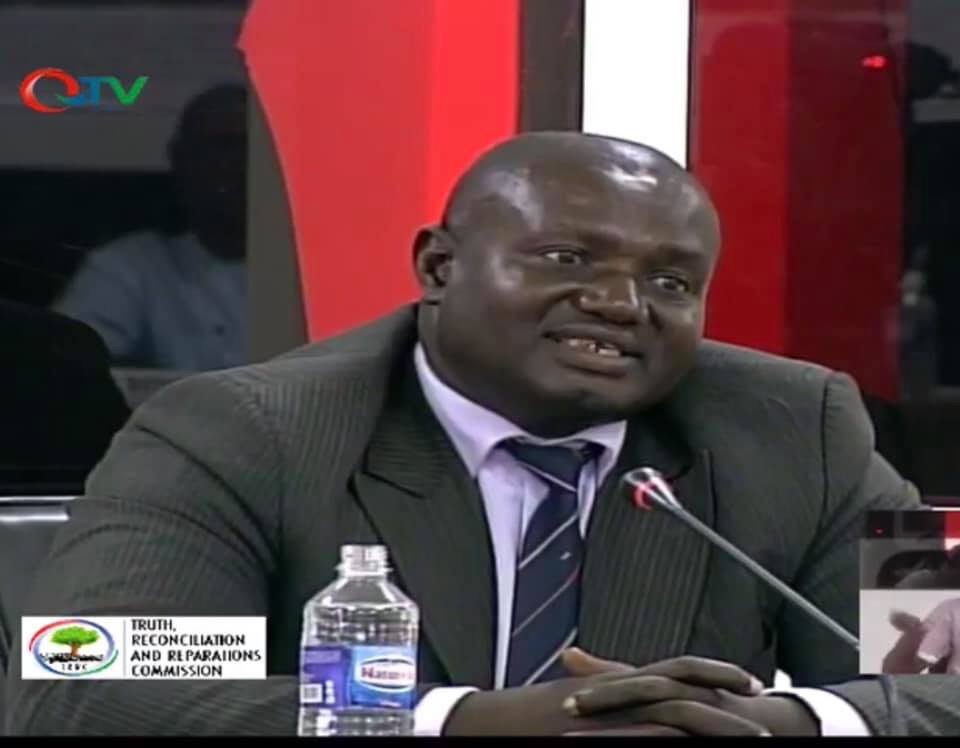
In the grand tradition of British satire, one might jest that if journalism were a circus, Cham’s piece would be the clown car—loud, crowded, and embarrassingly off the mark. Rather than shedding light on critical issues, it wallows in the murk of unverified claims and dubious assertions, much like an ill-conceived plot line from a soap opera.
First and foremost, it is essential to underscore the fundamental misapprehension in Cham’s comparison. Ousainou Darboe, a long-time opposition leader, is not a sitting president. To equate Darboe’s persistent electoral endeavors with Biden’s statesmanlike decision to step aside is to ignore the chasmic differences between the pressures faced by an incumbent president and those faced by a political aspirant.
Biden, weighed down by the onerous responsibilities of leading the most powerful nation on earth, made a choice informed by myriad considerations, including the health of the republic and his own personal capacities. Darboe, on the other hand, driven by an enduring commitment to his party’s vision, continues to vie for a leadership role he has never occupied—a pursuit entirely distinct from an incumbent’s reluctant abdication.
As Plato remarked, “One of the penalties for refusing to participate in politics is that you end up being governed by your inferiors.” Darboe’s continued engagement is an exercise in democratic duty, not a futile grasp for power. His persistent efforts reflect a dedication to democratic values and a commitment to his party’s principles, which should be acknowledged rather than disparaged.
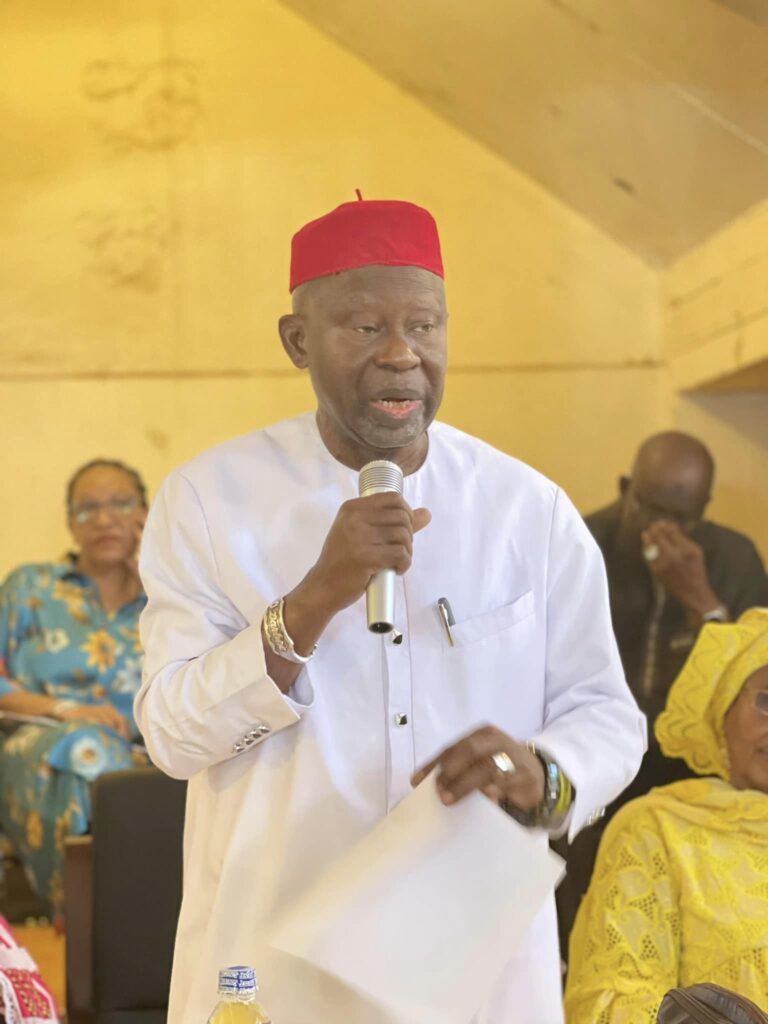
It is far more preferable to have an academic vying for public office than to witness a parade of high school dropouts ascending to the presidency. What lessons have we not learned from these past years? High-caliber candidates like Darboe offer far more promise than those lacking in both education and vision.
Cham’s reliance on an unnamed “seasoned analyst” to substantiate his critique is not merely problematic but emblematic of a wider malaise afflicting contemporary Gambian journalism: the erosion of accountability and transparency. The use of anonymous sources, while occasionally justifiable, here serves only to shroud the piece in a miasma of unaccountable conjecture.
The analyst’s assertion that it is “self-destructive to stick to only one candidate for a lifetime” floats unanchored, devoid of contextual ballast or empirical support.
In a democratic polity, the electorate’s voice should reign supreme, and Darboe’s persistent appeal across multiple elections is a testament to a vibrant democratic spirit, not a marker of political stagnation. As John Stuart Mill asserted, “The worth of a State, in the long run, is the worth of the individuals composing it.” Darboe’s continuous candidacy underscores the vitality of Gambian democracy.
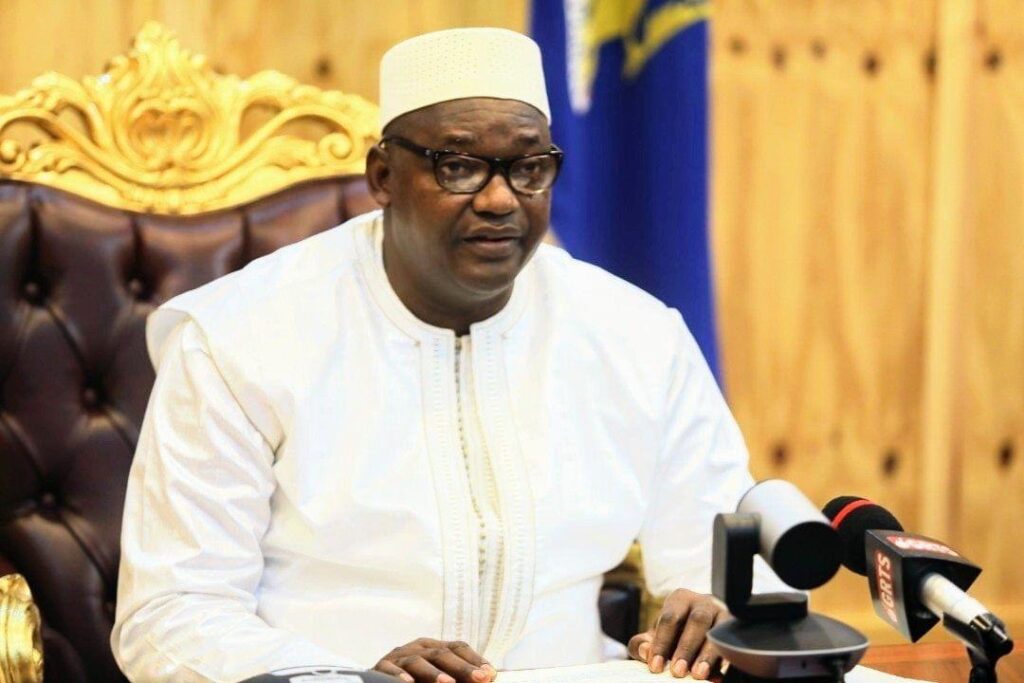
Darboe’s political journey, far from being a quixotic tilting at windmills, is a saga of resilience and unwavering public support. His significant role in the 2016 presidential election, wherein his party was instrumental in the coalition that ousted a long-standing autocrat, underscores his indelible imprint on Gambian politics.
The trust and hope reposed in him by a substantial segment of the Gambian populace cannot be dismissed with facile comparisons and ungrounded critiques. As Thomas Paine eloquently put it, “The harder the conflict, the more glorious the triumph.” Darboe’s enduring struggle embodies this principle, reflecting a steadfast dedication to democratic ideals.
Furthermore, Cham’s piece suffers from a glaring lack of balance, a sine qua non of ethical journalism. The omission of Darboe’s perspective or the viewpoints of his supporters transforms what should be an objective analysis into a diatribe. By failing to represent all relevant sides, the article tips precariously into the abyss of bias, undermining its own credibility.
Cham’s article, in its one-sidedness, veers perilously close to the realm of political satire found in publications such as The Onion, where sensationalism and satire often replace substantive discourse.
A more judicious approach would have involved a thorough examination of the broader African political landscape, juxtaposing Darboe’s experience with that of other long-standing figures on the continent. For instance, Senegal’s Abdoulaye Wade contested several times before finally winning the presidency at the age of 74.
Wade’s repeated attempts and eventual success highlight the importance of persistence in political leadership and could have provided a more insightful comparison. Similarly, the monumental struggles and eventual triumphs of Nelson Mandela illustrate the virtue of unwavering perseverance in the face of immense adversity.
Cham’s speculative critique of President Barrow’s potential third-term ambitions similarly falters, resting on conjecture rather than concrete evidence. The insinuation that Barrow is swayed by sycophants lacks the substantiation necessary for serious discourse. A rigorous analysis would have scrutinised Barrow’s public statements, policy initiatives, and political machinations to build a cogent case, rather than relying on uncorroborated surmises.
Cham’s reliance on speculation rather than solid evidence exemplifies a perilous trend in modern journalism and underscores the presence of lazy reporting and editorial missteps.
Despite its superficial allure, Cham’s article has garnered wide readership, a testament to the troubling ascendancy of clickbait journalism.
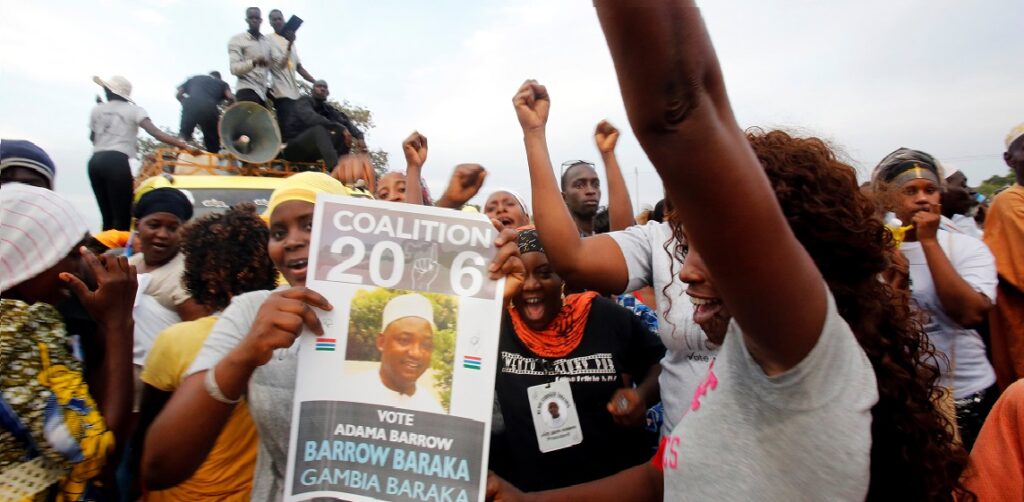
The article’s Google ranking, indicative of its digital traction, underscores a broader malaise: the triumph of engagement metrics over journalistic integrity. Sensational headlines and reductive analysis, while momentarily captivating, contribute little to the edification of public discourse and much to its degradation. As Noam Chomsky has pointed out, “The media serve the interests of state and corporate power, which are closely interlinked.”
Cham’s article, in prioritising sensationalism, falls into this trap, undermining the very principles it ought to uphold. It reads more like propaganda, suggesting he might have been hired by interests opposed to credible reporting.
Traditionally, reputable news organisations adhered to a meticulous editorial process, a multi-layered sieve designed to ensure the accuracy, clarity, and quality of content. This involved the diligent efforts of reporters, copy editors, news editors, sub-editors, and the editor-in-chief, each layer adding a veneer of scrutiny and polish.
Cham’s piece, in bypassing these rigorous stages, stands as a cautionary exemplar of the perils of expedient journalism.
Cham’s article, in its lack of editorial diligence, falls short of this measure, casting a shadow over its integrity.
In a nutshell, Cham’s article fails to meet the basic tenets of responsible journalism, presenting a heavily opinionated narrative devoid of credible, verifiable sources. The comparison between Darboe and Biden is not only ill-conceived but also fundamentally flawed, given the disparate political contexts they inhabit.
For journalism to fulfill its sacred role as the fourth estate, it must eschew sensationalism in favour of substantive, fact-based reporting. Only then can it sustain public trust and foster an informed, vibrant democratic discourse.
Cham’s article, regrettably, falls far short of this ideal, opting for unsubstantiated polemics over the illuminating power of well-researched truth. As Walter Lippmann asserted, “There can be no higher law in journalism than to tell the truth and to shame the devil.” Cham’s piece, in its failure to adhere to this maxim, represents a missed opportunity for meaningful critique and discourse.
Celebrate, not castigate Lawyer Ousainou Darboe
Instead of acknowledging and even celebrating Lawyer Ousainou Darboe’s legendary work, many so-called journalists and radio talking heads have routinely launched campaigns of disinformation and misinformation to sow seeds of doubt and discord within the UDP.
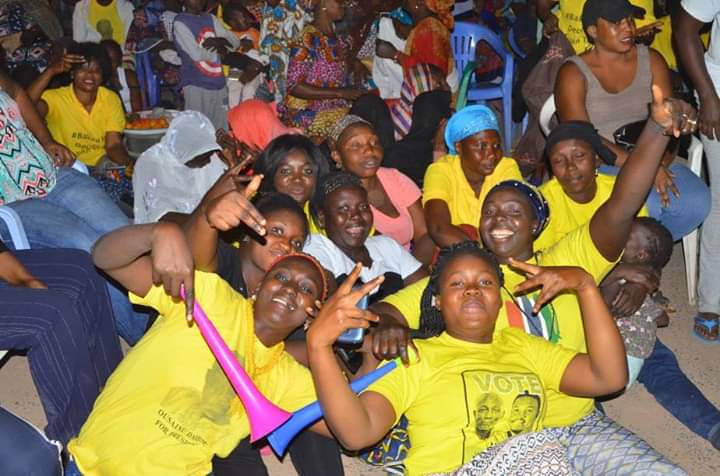
Cham’s misdirected critique points to a dearth of scholarship in political discourse where journalists deploy crude tactics to cast aspersion on political figures. Presenting the views of anonymous sources to represent the broader public is not only a hasty generalisation but also a myopic conclusion about political matters.
Even his opponents would agree that Ousainou Darboe is not only fit for the job but also most deserving of occupying the presidency. Darboe is a towering figure in Gambia’s legal and political landscape, often likened to phenomenal figures such as Nelson Mandela for political steadfastness or Lord Diplock for legal prowess.
Darboe’s stature, both literal and metaphorical, commands respect across the spectrum of Gambian society. His integrity, excellence, and dedication to the law have earned him a revered place among the nation’s legal minds.
Former Minister of Justice, Fafa Mbai, eloquently captured Darboe’s legal prowess during a speech at the retirement event of Sourahata B. Semega Janneh. Mbai stated: “Malick, as a member of the Inner Temple, you must have met or seen Lord Diplock, that great English Judge who was small in stature. Uncle Ousainou Darboe is like Lord Diplock in stature. And like Lord Diplock, he is a giant in the law. It is great joy to behold his dignity in Court, and a greater joy to hear him applying the law to the evidence like the tapestry of a renowned artist. In the process, he may appear to be jumping up as if to proclaim ‘nobody is taller than me here.’ He is right; nobody is taller than him in the law.”
Darboe’s reputation is built on a foundation of respect and collegiality, embodying the Latin phrase “honour virtutis praemium” (honour is the reward of virtue). His peers, including esteemed lawyers like Antoumana Gaye, Amie Bensouda, and Awa Sisay Sabbaly, hold him in high regard, reflecting the high esteem in which he is held within the legal community.
As Albert Einstein once noted, “Try not to become a man of success, but rather try to become a man of value.” Darboe exemplifies this principle through his unwavering commitment to the law and justice.
Darboe’s legal acumen and commanding courtroom presence elevate him above his peers. His career is distinguished by significant contributions to the legal landscape of The Gambia, leaving an indelible impression comparable to a lawyerly Michelangelo chiseling away at the marble of injustice. His relentless advocacy for justice and fairness has earned him widespread respect, making him a shining example in a sea of legal ambiguity.
Darboe’s impact extends far beyond the confines of the courtroom, a realm where lesser mortals might falter. As a mentor and inspiration to aspiring lawyers, his dignified demeanour and methodical application of the law set a benchmark for the profession that would make even the most stoic of legal practitioners shed a tear of admiration.
The comparison to Lord Diplock underscores not only his prodigious legal skills but his towering moral and ethical stature, like a judicial colossus bestriding the narrow world. Reflecting on the character of Henry Drummond in Inherit the Wind, one sees how Darboe’s intellectual rigour and commitment to justice parallel Drummond’s passionate defence of free thought and individual rights.
Recognising Darboe’s contributions is essential as we celebrate our legal titans, those rare individuals who ascend the heights of legal Olympus. His achievements light the way for future generations of lawyers, guiding them like a North Star in the dark night of jurisprudence.
Honouring figures like Darboe pays tribute not only to their personal achievements but to the values they embody—justice, integrity, and the pursuit of excellence. Ousainou Darboe exemplifies what is attainable when one is devoted to justice. His legacy is a testament to legal brilliance and moral fortitude, inspiring all who follow in his footsteps.
Practice what you preach
Lamin Cham’s article poses the question of whether Barrow or Darboe will follow the example of U.S. President Joe Biden, but it is Cham himself who must now be called to follow the example set by responsible journalism.
The case of New York Times Editorial Page Editor James Bennet, who resigned following a backlash over a widely criticized opinion article written by Senator Tom Cotton, is instructive. If Cham is worth his salt, he should consider stepping down from his position in response to the widespread criticism his article has received. As Marcus Aurelius reflected, “Waste no more time arguing about what a good man should be. Be one.”
As Editor-in-Chief with over 25 years of experience in news reporting, Cham should have been acutely aware of the critical distinction between news and opinion. Even a cub reporter or an undergraduate in journalism school knows that the sacrosanct duty of an editor is to maintain this distinction with unwavering clarity.
As the former editor of the Daily Observer, A.A. Njai, would always insist, the duty of editors is to ensure that the news is critically vetted to be free of grammatical and legal pitfalls. Given the lack of serious reporting, ethical rigour, and analytical depth evident in Cham’s article, one might well call for his resignation to preserve the reputation of The Standard.
The newspaper, under Cham’s editorial guidance, is now akin to the kettle calling the pot black, castigating political figures for faults while itself indulging in journalistic transgressions. Cham’s departure could serve as a necessary step toward restoring The Standard’s credibility, signaling a commitment to upholding the highest standards of journalistic integrity.
It would be an act of professional responsibility, echoing the principles he so fervently espouses in his critiques of others. As Oscar Wilde wryly observed, “Every saint has a past, and every sinner has a future.”
Cham’s resignation would not only be a gesture of accountability but a reaffirmation of the core values of journalism: accuracy, fairness, and the unyielding pursuit of truth. It would send a powerful message that The Standard is dedicated to maintaining its integrity, even at the cost of difficult personnel changes.
The mantle of journalistic integrity, like the toga of a Roman senator, must be worn with honour and defended against any stain of impropriety. By stepping down, Cham would demonstrate a laudable commitment to these timeless principles, akin to a philosopher returning to the simplicity of the agora, eschewing the trappings of power for the purity of discourse. As Socrates might have advised, “The unexamined life is not worth living.”
In summation
The flaws in Cham’s article are not merely incidental but symptomatic of a deeper malaise afflicting modern journalism. The erosion of editorial rigour, the blurring of lines between news and opinion, and the prioritisation of sensationalism over substantive analysis all contribute to a degradation of public discourse.
Cham’s piece, in failing to uphold the tenets of responsible journalism, serves as a stark reminder of the essential role of editors in safeguarding the integrity of the news.
By embracing the high standards of ethical journalism and acknowledging his own missteps, Cham has an opportunity to contribute meaningfully to the revitalisation of The Standard. In doing so, he would honour the legacy of esteemed journalists and editors who have gone before him and set a sterling example for those who will follow.
Cham’s recognition of his errors and subsequent resignation could symbolise a renewal of journalistic integrity and a commitment to the enduring values of truth and justice.
Critiquing the untouchable
In delivering this critique of Lamin Cham and The Standard newspaper, it is inevitable that there will be a backlash from both the Gambian press corps and the public. Cham and his publication are often held in high regard, considered by many to be beyond reproach.
However, the hallmark of a progressive society is the courage of its intellectuals to speak out when they notice abnormalities. Shallow journalism has no place in modern society, where education is freely available, and it is imperative for Gambian journalism to shed its complacency and evolve intellectually to keep pace with the rapidly changing dynamics of the field.
As Aristotle once noted, “The high-minded man must care more for the truth than for what people think.” This principle is especially pertinent in the realm of policy discourse on high-stakes political matters, where the pursuit of truth should supersede any concern for personal relationships or institutional affiliation.
Critiquing revered figures and institutions is often met with resistance, but it is essential for the health of a democratic society. Intellectual honesty demands that we scrutinise and challenge the status quo, ensuring that even the most esteemed entities are held accountable.
The reaction from the Gambian press corps and the public may be one of indignation, as Cham and The Standard are deeply ingrained in the journalistic landscape.
Nevertheless, it is this very challenge that fosters growth and improvement. As Socrates famously asserted, “The unexamined life is not worth living.” By examining and critiquing the practices of our most respected figures, we can aspire to higher standards of truth and accountability.
Concluding thoughts
Lamin Cham’s descent into tabloid journalism with his recent article not only undermines the integrity of The Standard but also highlights a troubling trend in contemporary journalism. By abandoning rigorous reporting for sensationalism, Cham’s piece serves as a cautionary tale of the dangers inherent in prioritising clickbait over substantive analysis.
The call for a return to ethical journalism is not merely an appeal for better practices but a reaffirmation of the vital role that accurate, fair, and responsible reporting plays in a democratic society. Only by upholding these standards can journalism fulfill its sacred role as the fourth estate, contributing meaningfully to public discourse and the democratic process.
By Arfang Madi Sillah,
Washington DC
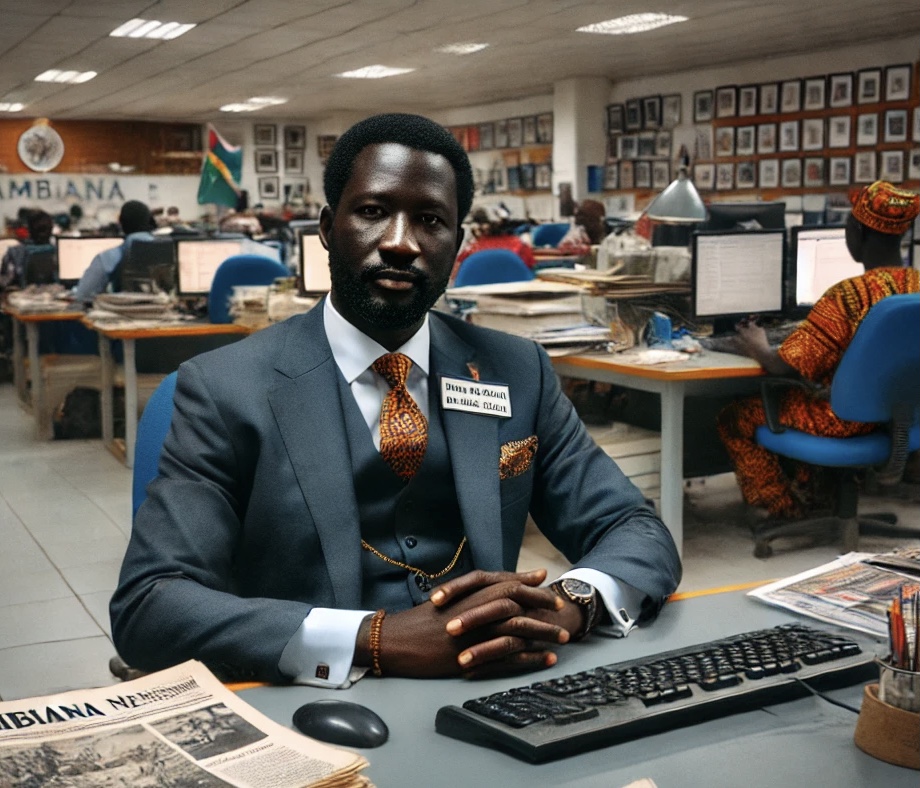
Disclaimer
The views expressed in this article are entirely those of the author and do not necessarily reflect the official policy or position of any affiliated institutions or organisations. The author takes full responsibility for the opinions and analysis presented herein. The author holds several academic degrees, including an undergraduate degree in English literature and literary theory.










Recent Comments